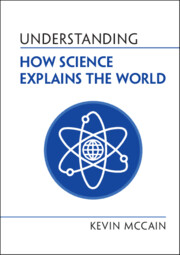Book contents
- Understanding How Science Explains the World
- Series page
- Understanding How Science Explains the World
- Copyright page
- Reviews
- Dedication
- Contents
- Foreword
- Preface
- Acknowledgments
- 1 Why Explanation Matters in Science
- 2 The General Nature of Explanation
- 3 Specific Kinds of Scientific Explanations
- 4 Explanation and Prediction
- 5 Evaluating Explanations
- 6 Explanatory Quality and Felt Understanding
- 7 False Theories, But Accurate Explanations?
- 8 From Explanation to Knowledge
- Concluding Remarks
- Summary of Common Misunderstandings
- References and Further Reading
- Figure Credits
- Index
6 - Explanatory Quality and Felt Understanding
Published online by Cambridge University Press: 17 June 2022
- Understanding How Science Explains the World
- Series page
- Understanding How Science Explains the World
- Copyright page
- Reviews
- Dedication
- Contents
- Foreword
- Preface
- Acknowledgments
- 1 Why Explanation Matters in Science
- 2 The General Nature of Explanation
- 3 Specific Kinds of Scientific Explanations
- 4 Explanation and Prediction
- 5 Evaluating Explanations
- 6 Explanatory Quality and Felt Understanding
- 7 False Theories, But Accurate Explanations?
- 8 From Explanation to Knowledge
- Concluding Remarks
- Summary of Common Misunderstandings
- References and Further Reading
- Figure Credits
- Index
Summary
A general way of appreciating some of the main ideas of the previous chapter is to recognize that explanations aim at providing understanding. Scientists and philosophers agree that understanding is a (if not the) primary epistemic goal of scientific inquiry. Both explanation and prediction tend to be closely related to understanding. We want explanations in science because we want to understand why the world is as it is and how things happen. And, once we understand various phenomena, we can make accurate predictions about them. One simple, and widely accepted, way of assessing the quality of a given explanation is to look at the understanding it provides. Roughly, the better an explanation, the more understanding that explanation (if true) would provide. As philosopher Peter Lipton explained, the explanation that is the best is simply the explanation that, if true, would provide the deepest understanding of the phenomena being explained. That being said, some worry because it seems that we might misjudge how well we understand something.
Keywords
Information
- Type
- Chapter
- Information
- Understanding How Science Explains the World , pp. 69 - 79Publisher: Cambridge University PressPrint publication year: 2022
